What It’s Like When Your House Catches Fire
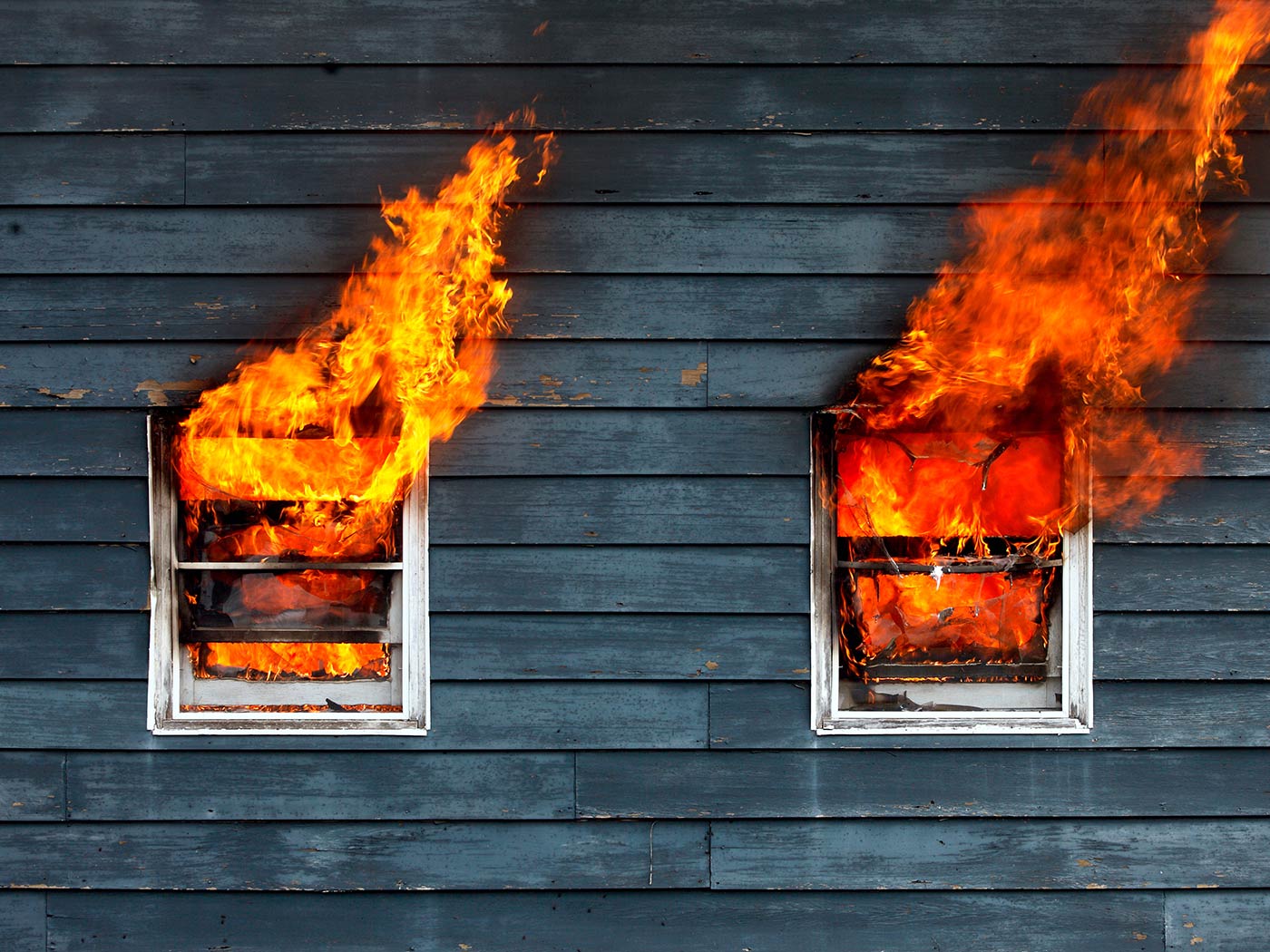 Shutterstock
Shutterstock
When the unthinkable happened to AAA Members Darlene and Raymond Falkner, the homeowners insurance they’d gotten through AAA helped save the day. Here’s how it felt to Darlene, followed by four tips for making sure a fire doesn’t happen to you.
How It Started
My husband, Raymond, woke me one morning in February 2015 with news no one wants to hear: Our house was on fire, and there was no time to save anything but ourselves. Outside the farmhouse that had been our home for more than 60 years, we stood in zero-degree weather as firefighters put out the blaze. We learned that sparks from our wood furnace had started a chimney fire, which burned one side of the house and spread through the attic, destroying the roof.
How Insurance Helped
Then something happened that we weren’t expecting: We got an outpouring of support from neighbors, the Red Cross—and AAA. Neighbors donated cash to help with our immediate needs. The Red Cross got us a room in a motel where we could stay for the night. And our AAA Insurance agent, Robin Knopp, met with us at the motel and promised to see us through the ordeal.
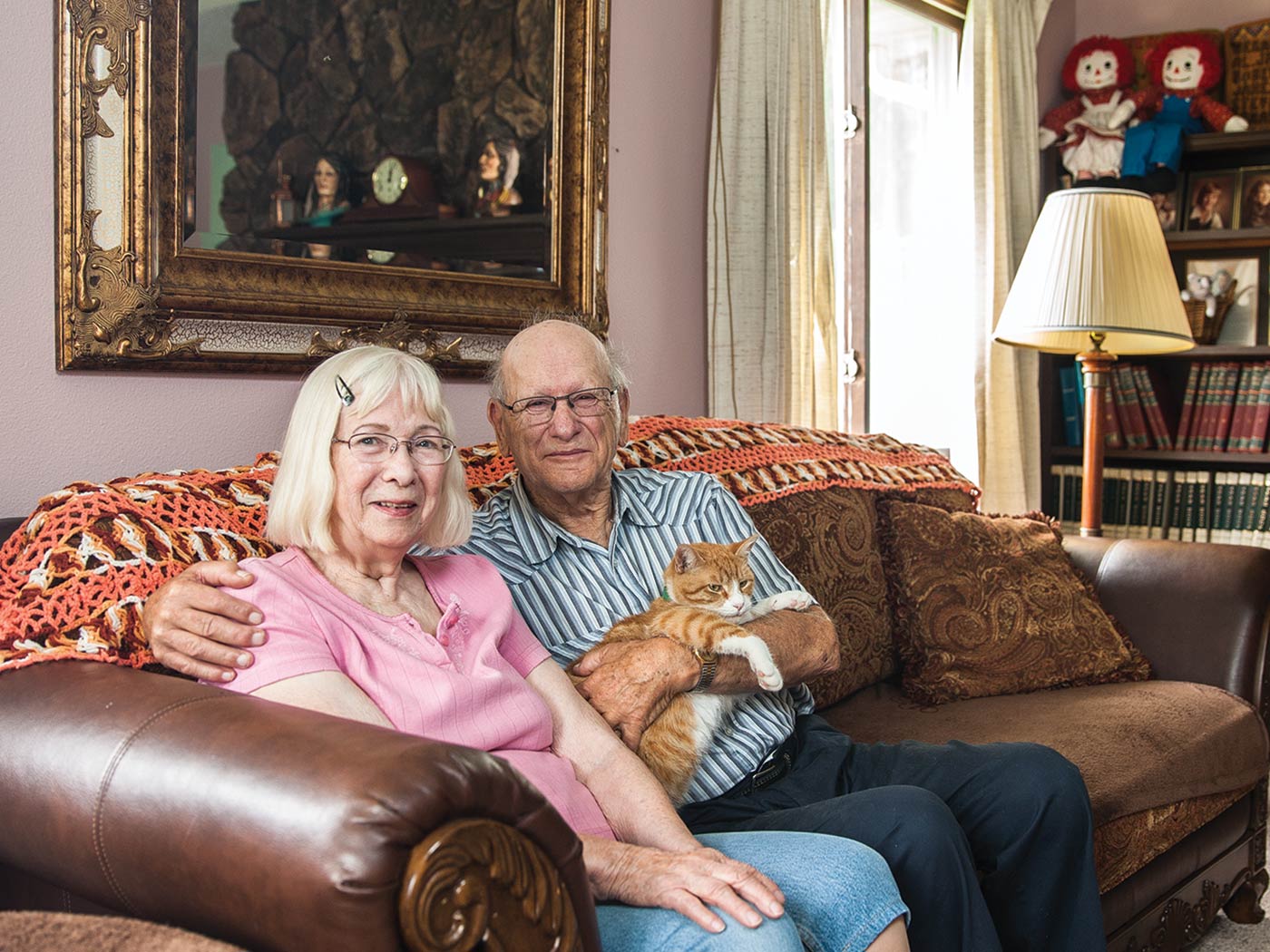 The Falkners in their newly repaired home.
David Ellis
The Falkners in their newly repaired home.
David Ellis
Robin had already been to the house to review the damage, and she contacted the AAA adjustor, Doug Huebner, to let him know where we were staying. Doug met with us the day of the fire and personally delivered a debit card that had $2,000 in emergency funds for us to use. He also explained the services that AAA could provide, and he contacted companies to start the restoration of our home. He even went to our property and, with a neighbor’s help, drained our water lines to prevent frozen pipes. The day after the fire, Doug arranged for temporary power to be connected at the house, and he got the cleaning and restoration specialists started.
How We Got Our Home Back
Next, Doug arranged for a hotel room where we could stay long-term, while our house was being rebuilt. Reconstruction of our house involved significant work, but as soon as it was complete, we moved back in. It’s a great feeling to be home, making new memories, thanks to the dedication of the team at AAA.
How to Prevent House Fires
Click through this slide show to discover some common fire hazards—and how to avoid a fire in your home.
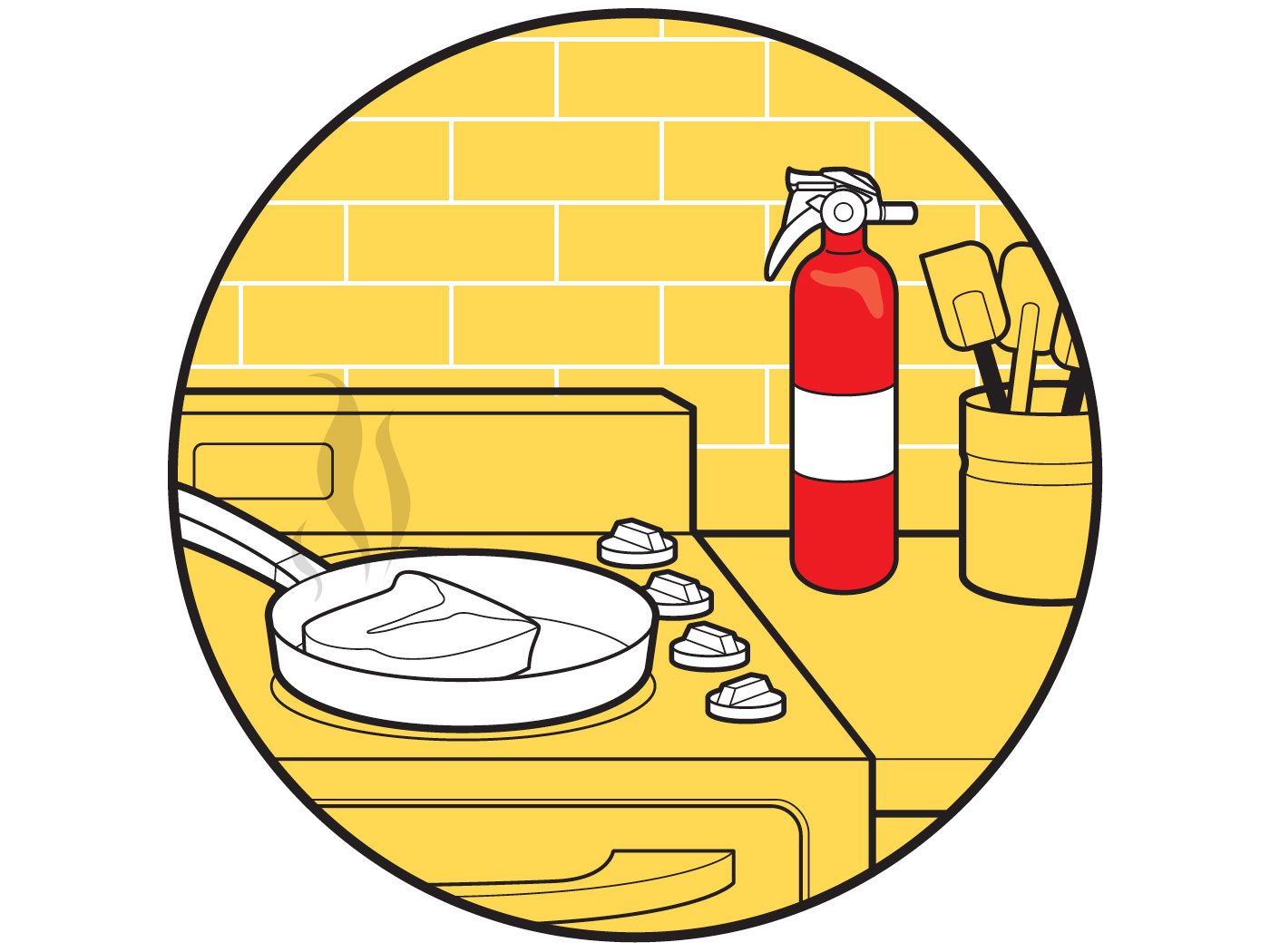
Kitchen Accidents
Cooking is the leading culprit in residential fires—accounting for 50 percent of all house fires in 2014, according to the U.S. Fire Administration. Don’t leave a hot stove unattended, and avoid setting things like recipe books on or near the stovetop. Never extinguish a grease fire with water; instead, keep on hand a charged fire extinguisher rated for class K fires, which include fires caused by cooking oils and fats. Kate Francis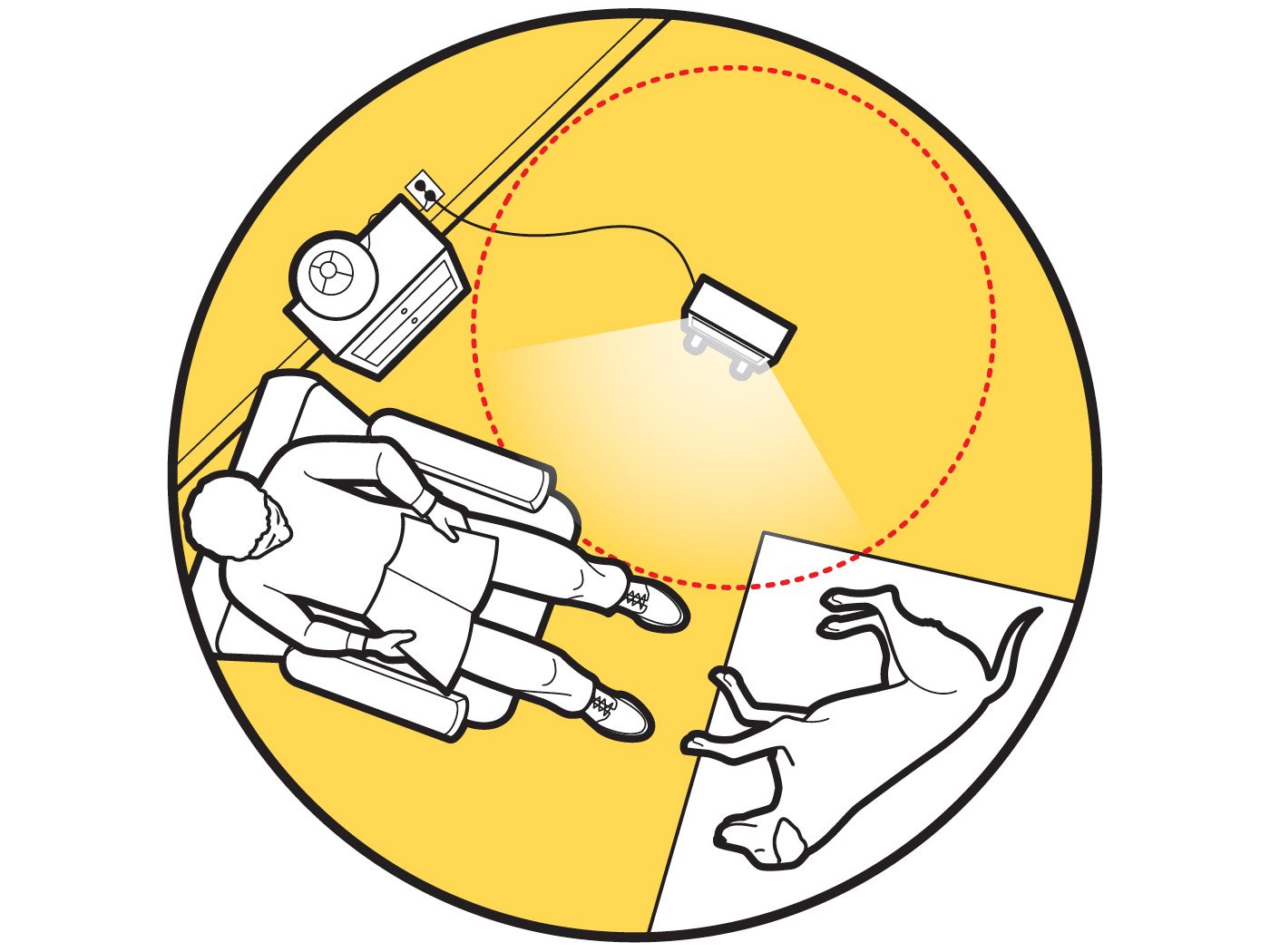
Heat Sources
Space heaters cause more than 25,000 residential fires each year, and home-heating equipment is the second-leading cause of home fires, after cooking. When using a space heater, keep a 36-inch radius around the heater that’s clear of clothes, bed sheets and furniture. Kate Francis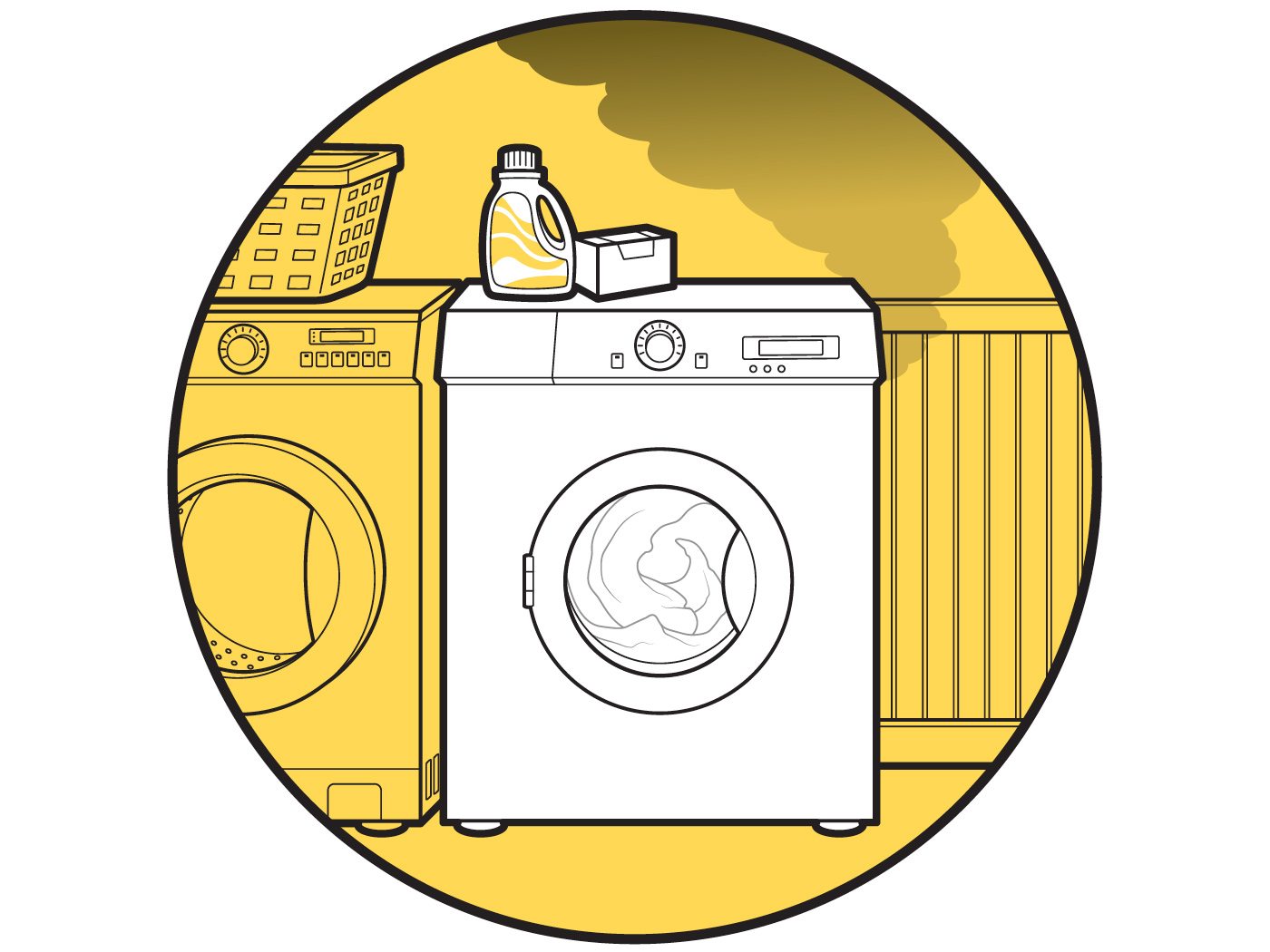
Home Appliances
If an appliance only works intermittently, stop using it until the problem is identified and corrected. Strange noises, vibrations, smoke or burning smells are all signals that something is not working properly. Unplug the appliance and call a professional to have it serviced. Kate Francis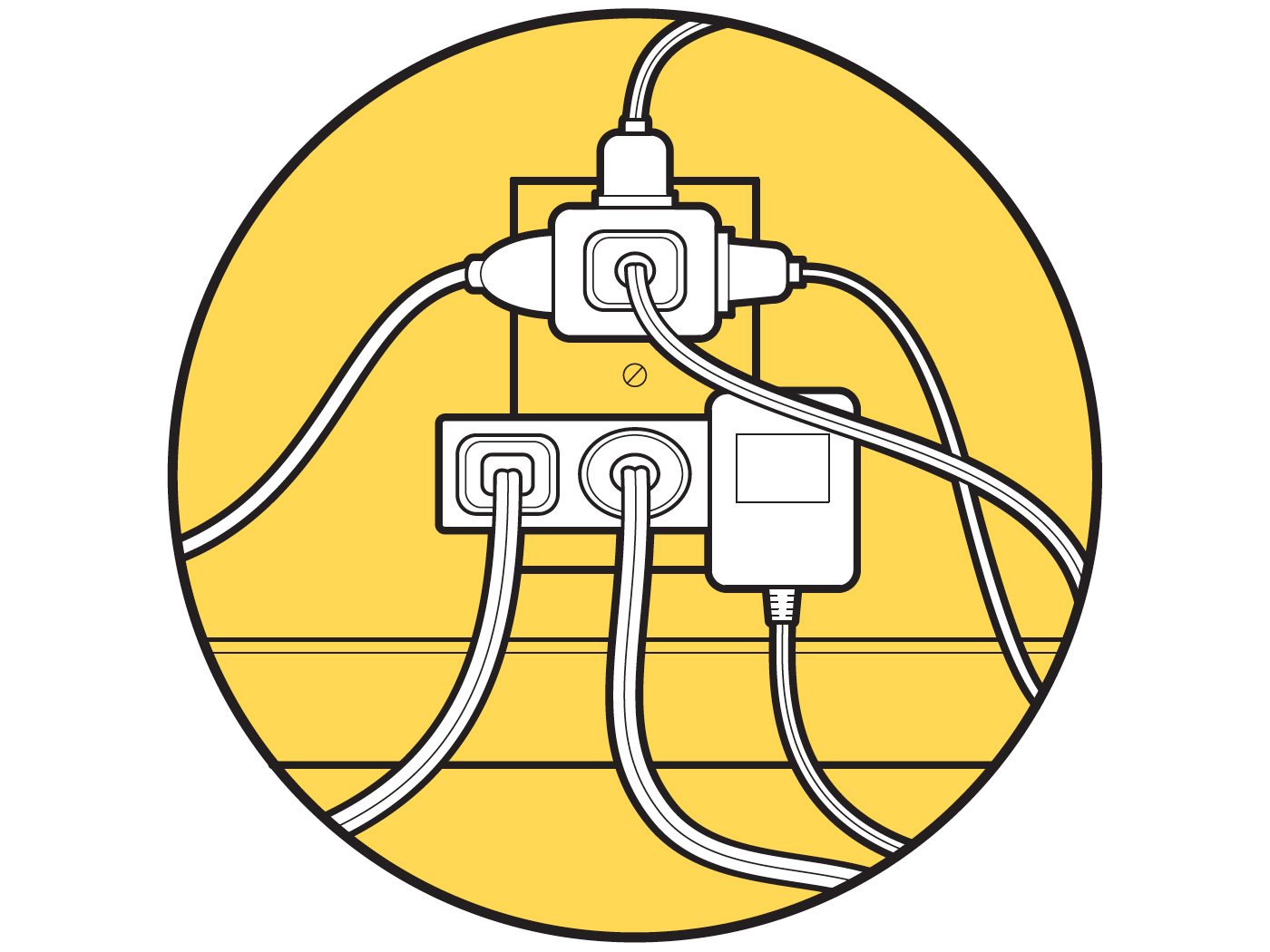
Electrical Wiring and Outlets
Overloaded outlets can pose a fire risk, and so can faulty wiring. Inspect plugs and cords, and discontinue use if there are signs of damage, such as frayed cords or smoke-stained electrical outlets. Kate Francis